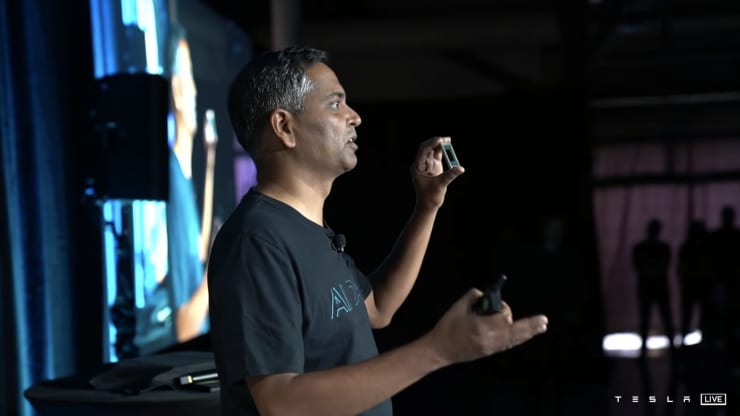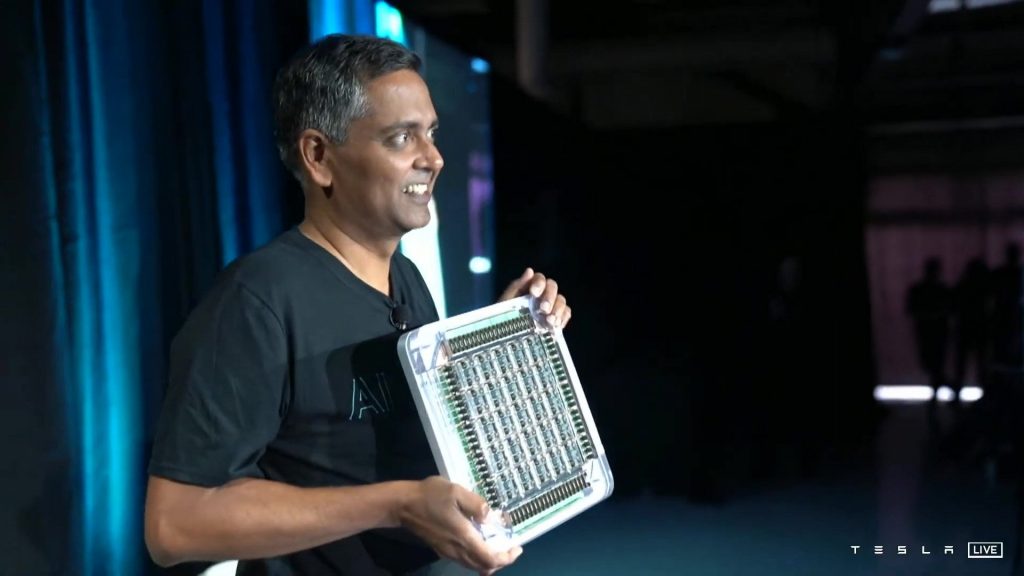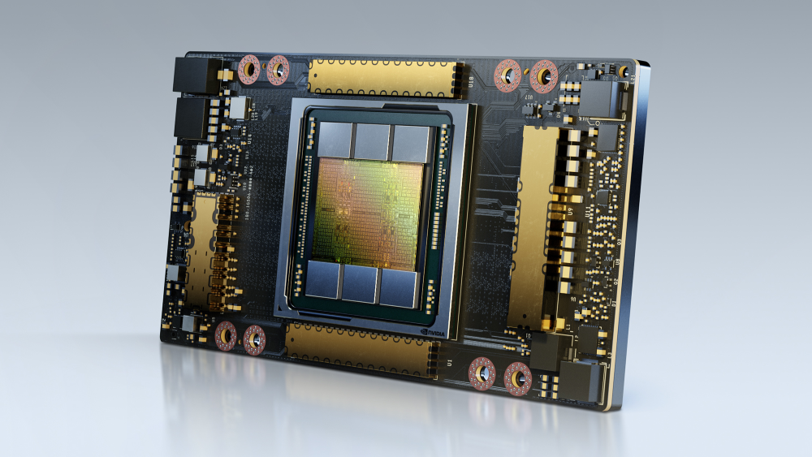On Thursday, Tesla announced a custom-made chip for training artificial intelligence networks in data centres. Shown at the carmaker’s Livestreaming AI Day, the work shows that the company is engaged in vertical integration.
The D1 chip, an integral part of Tesla’s Dojo supercomputer system, uses a 7-nanometer manufacturing process, with 362 teraflops processing power, said Ganesh Venkataramanan, senior director of Autopilot hardware. In addition, 25 chips are inserted into a single “training tile,” 120 of these tiles come across a few server cabinets, reaching over an exaflop of power, Venkataramanan said.
“We are assembling our first cabinets pretty soon,” said Venkataramanan, who previously worked at chipmaker AMD.

Tesla technology will be the speediest AI-training computer. Chipmaker Intel, graphics card maker Nvidia and Graphcore are the companies that make chips to train AI models.
Chips train AI models to recognize videos stored by Tesla vehicles’ cameras. Model training involves widespread computing.
“We should have Dojo operational next year,” CEO Elon Musk said.
This effort will take place two years after Tesla began manufacturing vehicles with its own AI chips. These chips assist the in-vehicle software in making prompt choices on the road.

With the $ 10,000 package, the car will automatically change lanes, navigate on highways, move to the parking lot, and leave the parking lot for the driver to arrive. According to Tesla’s website, the package will also include the ability for Tesla to navigate city streets automatically. However, the company had previously announced that feature to be available in 2019. In addition, the website also states that Full-Self Driving aspects “require active driver supervision and do not make the vehicle autonomous.” Tesla also announced a $199 monthly subscription to sign up for Full-Self Driving.

Tesla’s moniker driver-assistance features are heavily criticized. It is considered misleading as the car’s software does not provide Level 5 autonomy, where a car can fully operate without human help.
Last year, a German court declared that Tesla deceived users about the autonomous vehicle capabilities. Earlier this week, the Department of Road Safety announced a detailed probe on Tesla’s autopilot, acceleration and braking skills after several incidents.


